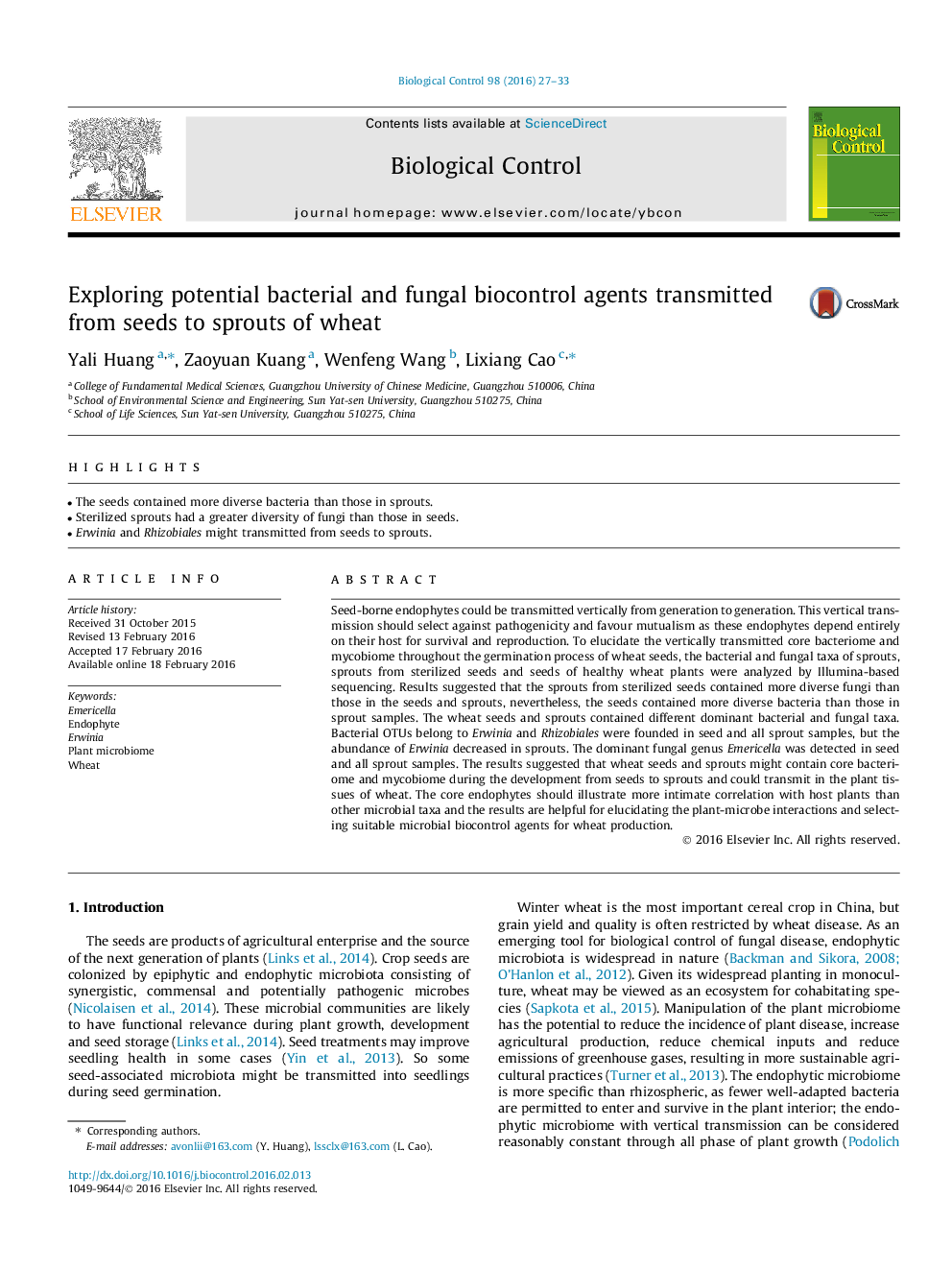| Article ID | Journal | Published Year | Pages | File Type |
|---|---|---|---|---|
| 4503625 | Biological Control | 2016 | 7 Pages |
•The seeds contained more diverse bacteria than those in sprouts.•Sterilized sprouts had a greater diversity of fungi than those in seeds.•Erwinia and Rhizobiales might transmitted from seeds to sprouts.
Seed-borne endophytes could be transmitted vertically from generation to generation. This vertical transmission should select against pathogenicity and favour mutualism as these endophytes depend entirely on their host for survival and reproduction. To elucidate the vertically transmitted core bacteriome and mycobiome throughout the germination process of wheat seeds, the bacterial and fungal taxa of sprouts, sprouts from sterilized seeds and seeds of healthy wheat plants were analyzed by Illumina-based sequencing. Results suggested that the sprouts from sterilized seeds contained more diverse fungi than those in the seeds and sprouts, nevertheless, the seeds contained more diverse bacteria than those in sprout samples. The wheat seeds and sprouts contained different dominant bacterial and fungal taxa. Bacterial OTUs belong to Erwinia and Rhizobiales were founded in seed and all sprout samples, but the abundance of Erwinia decreased in sprouts. The dominant fungal genus Emericella was detected in seed and all sprout samples. The results suggested that wheat seeds and sprouts might contain core bacteriome and mycobiome during the development from seeds to sprouts and could transmit in the plant tissues of wheat. The core endophytes should illustrate more intimate correlation with host plants than other microbial taxa and the results are helpful for elucidating the plant-microbe interactions and selecting suitable microbial biocontrol agents for wheat production.
